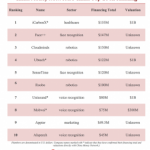CHINA'S inflation slowed to 2.1 percent year on year in March, down from February's 10-month high of 3.2 percent and greatly easing the possibility of tightening policies.
Moderation in the Consumer Price Index, the main gauge of inflation, was largely out of lower food prices after the Chinese New Year, the National Bureau of Statistics said this morning.
Food costs, which account for nearly one third in the CPI basket, expanded 2.7 percent on an annual basis, retreating from 6 percent in the prior month. Prices of vegetables slumped 10.3 percent while pork lost 5.5 percent, the bureau's data showed.
Zhou Hao, an economist at Australia & New Zealand Banking Group Ltd, said the CPI moderation was sharper than market expectation of 2.5 percent, indicating the inflation growth momentum has slowed significantly.
"The much-lower-than-expected inflation figures suggest that the People's Bank of China's tightening bias will probably be eased off in the next two to three months," Zhou said.
"However, the central bank will likely remain a prudent policy stance if capital inflows are strong and property prices are rising at a fast pace."
Another source of worry was the outbreak of H7N9 bird flu in Shanghai and elsewhere, said Nomura Economist Rob Subbaraman.
"The economy is vulnerable to an epidemic when people shun public places and cut back on trade, travel and other services," Subbaraman said.
"But so far, the outbreak of the H7N9 avian flu in China has not developed an ability to transmit efficiently from human to human."
ANZ's Zhou said the bird flue outbreak will probably decrease meat consumption in the short term, which is likely to ease the inflationary pressures further in April and May.
In the first quarter, China's inflation rose 2.4 percent, smaller than the government target of 3.5 percent which was set at the beginning of the year.
Producer Price Index, the factory-gate measurement of inflation, fell 1.9 percent year on year in March, deepening from the decrease of 1.6 percent in February and indicating that demand pressures were anemic.
"The pass-through effects from PPI to CPI will remain subdued in the short term," said Li Maoyu, an analyst at Changjiang Securities Co.
Lian Ping, chief economist at Bank of Communications, said China currently has to well manage three thing - the bird flu disease, the property market and people's confidence - to sustain its economic growth.
A recent survey by the Bank of Communications showed that Chinese households were less confident of the domestic economy in March, with their interest to buy real estate assets falling to almost zero amid the new round of restrictive housing policies.
The China Wealth Index, compiled by the bank to gauge sentiment among 1,910 Chinese households in major cities, fell to 125 in March from January's 129, the first retreat in at least half a year.
People's willingness to purchase properties lost 11 points to 100, indicating no intention to conduct the deal right now.
But China's economic growth is still expected to accelerate to above 8 percent in the first three months, up from 7.9 percent in the fourth quarter of last year, analysts said before the data are to be released next Monday.









